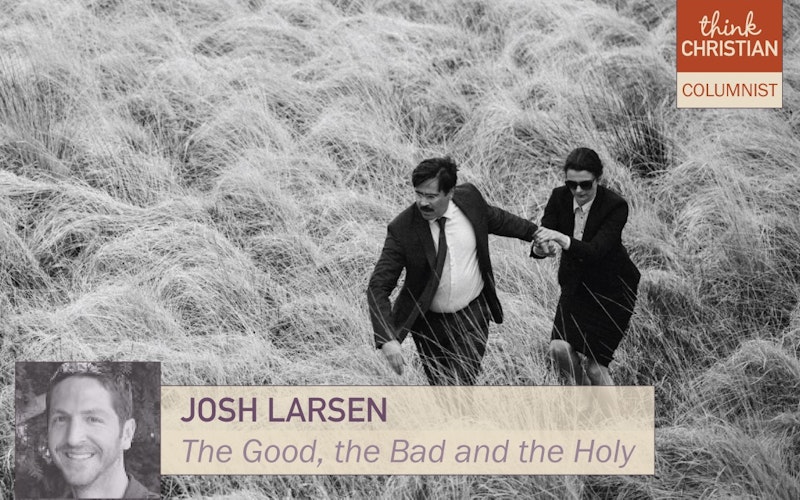
Movies
The Lobster and our idolization of marriage
If Paul had wanted to emphasize his point about marriage to the troubled church in Corinth, he might have shown them the The Lobster, the latest film from Greek writer-director Yorgos Lanthimos.
This bracing and blackly comic movie imagines a world in which it is illegal to be single. Those who find themselves without a partner — as an architect named David (Colin Farrell) does after his wife divorces him — check in at a hotel with other singles, where they have 45 days to find a companion. If they fail, they will be turned into an animal of their choosing.
Lanthimos specializes in this sort of social-experiment cinema. His two previous films, Alps and Dogtooth, turn on equally outlandish concepts. At the hotel in The Lobster, which is overseen by a creepily content couple, all the men must wear the same shirt and pants, while all the women wear the same dress. Attendance at a joyless dance is mandatory. When a couple pairs off, they are monitored closely for progress toward marriage. And if there are any bumps along the way, they’re assigned a child, because “that usually helps.”
As you can see, The Lobster is taking direct, satirical aim at a societal sacred cow: the notion that marriage is the key to personal happiness and that singleness is a deficiency. Such singlism can be found everywhere, but there is an argument to be made that it is especially pervasive among North American Christians. In many ways, we’ve come to idolize the idea of marriage by declaring that the uniting of man and woman, along with procreation, are the highest callings God has given us. Writing about marriage earlier on TC, Branson Parler quoted Alexander Schmemann, who described the problem this way: “…the real sin of marriage today is … the idolization of the family itself, the refusal to understand marriage as directed toward the Kingdom of God. …It is not the lack of respect for the family, it is the idolization of the family that breaks the modern family so easily, making divorce its almost natural shadow. It is the identification of marriage with happiness and the refusal to accept the cross in it.”
The Lobster takes direct, satirical aim at a societal sacred cow.
As a result of this idolization, the very structure of the church is often unfriendly to singles, not to mention flummoxed by the idea of single pastors. This all would seem odd — and likely concerning — to Paul, who saw his own singleness as a gift. Whatever you make of his treatise on marriage in 1 Corinthians 7, it’s safe to say that for him, remaining single is preferable to getting married. “Those who marry will face many troubles in this life,” Paul wrote, “and I want to spare you this.”
The denial of this reality — that marriage, for all the joy it can bring, is also difficult, self-sacrificial work — is what The Lobster means to satirize. The movie isn’t anti-marriage as much as it seeks to expose the way we have come to romanticize and commodify the practice, both in the church and society at large. Indeed, beneath the black comedy, the movie even offers an acknowledgment of our desire and need for relationship.
There are brief little moments in the film in which David tries to apply pain-relief ointment to his back, but can’t reach the part that hurts. These throwaway scenes hint at the turn the movie takes in the second half, when David encounters a woman (Rachel Weisz) who lives in a community of illegal “loners” hiding in the forest surrounding the hotel. The loners despise marriage as much as the hoteliers despise singleness and have strict rules against coupling. Yet David believes he’s found someone special in this woman, not the least of which is her willingness to help him with the ointment. In turn, he considers what sort of sacrifices he would be willing to make for her.
As the focus turns to this couple, The Lobster registers less as a caustic screed against marriage than a variation on another of Paul’s letters. In Romans 8, Paul gets personal, suggesting that what we — and all of creation — long for is relationship, and a loving one at that: “For I am convinced that neither death nor life, neither angels nor demons, neither the present nor the future, nor any powers, neither height nor depth, nor anything else in all creation, will be able to separate us from the love of God that is in Christ Jesus our Lord.”
If earthly love can be a reflection of this sacrificial, heavenly love, then a marriage based upon it seems like something that both The Lobster and Paul might bless.
Topics: Movies, Culture At Large, Arts & Leisure, Theology & The Church, The Bible, The Church, Home & Family, Marriage